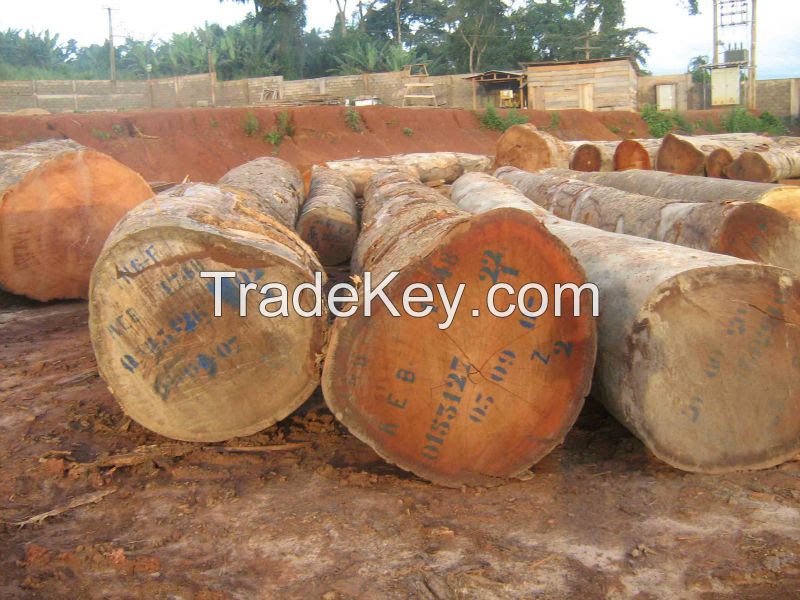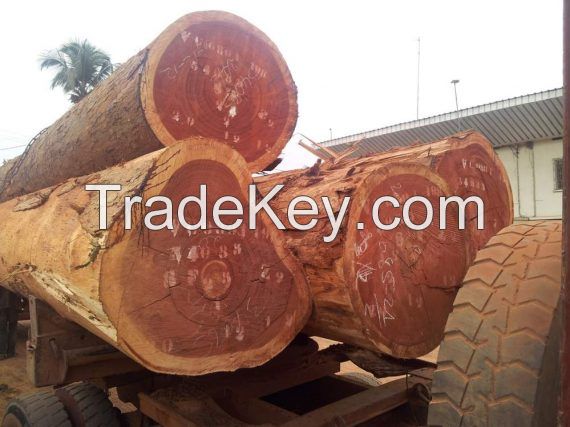

Precio FOB
Obtener el precio más reciente|
1 Twenty-Foot Container Minimum Order
País:
Nigeria
N º de Modelo:
-
Precio FOB:
Lugar de origen:
Nigeria
Precio de pedido mínimo:
-
Cantidad de pedido mínimo:
1 Twenty-Foot Container
Detalle de embalaje:
Container
El tiempo de entrega:
14 days or as per vessel schedule
Capacidad de suministro:
-
Tipo de pago:
T/T, L/C
Grupo de productos :
-
Persona de contacto Mr. Joe
First Logistics Global Services Ltd. Topwide Ventures Ltd 30 Barbs Animashaun Street, Surulere, Lago, Lagos, Lagos
SAPELE
Common Name(s): Sapele, Sapelli, Sapeli
Scientific Name: Entandrophragma cylindricum
Distribution: Tropical Africa
Tree Size: 100-150 ft (30-45 m) tall, 3-5 ft
(1-1.5 m) trunk diameter
Average Dried Weight: 42 lbs/ft3 (670 kg/m3)
Specific Gravity (Basic, 12% MC): .50, .67
Janka Hardness: 1,410 lbf (6,280 N)
Modulus of Rupture: 15,930 lbf/in2 (109.9 MPa)
Elastic Modulus: 1,746,000 lbf/in2 (12.04 GPa)
Crushing Strength: 8,750 lbf/in2 (60.4 MPa)
Shrinkage: Radial: 4.8%, Tangential: 7.2%,
Volumetric: 12.8%, T/R Ratio: 1.5
Color/Appearance: Heartwood is a golden to dark
reddish brown. Color tends to darken with age. Besides the common
ribbon pattern seen on quartersawn boards, Sapele is also known for
a wide variety of other figured grain patterns, such as:
pommele, quilted, mottled, wavy, beeswing, and fiddleback.
Grain/Texture: Grain is interlocked, and sometimes
wavy. Fine uniform texture and good natural luster.
Endgrain: Diffuse-porous; large pores in no
specific arrangement, few; solitary and radial multiples of 2-3;
reddish brown deposits occasionally present; parenchyma
diffuse-in-aggregates, unilateral, and marginal; rays narrow to
medium, spacing normal; ripple marks present.
Rot Resistance: Heartwood ranges from moderately
durable to very durable in regard to decay resistance. Moderate
insect/borer resistance.
Workability: Sapele can be troublesome to work in
some machining operations, (i.e., planing, routing, etc.),
resulting in tear out due to its interlocked grain. It will also
react when put into direct contact with iron, becoming discolored
and stained. Sapele has a slight blunting effect on cutters, but it
turns, glues, and finishes well.
Odor: Sapele has a distinct, cedar-like scent
while being worked.
Allergies/Toxicity: Although severe reactions are
quite uncommon, Sapele has been reported as a skin and respiratory
irritant. See the articles Wood Allergies and Toxicity and Wood
Dust Safety for more information.
Pricing/Availability: Should be moderately priced
for regular plain sawn or quarter sawn lumber, though figured
lumber.
Sustainability: This wood species is not listed in
the CITES Appendices, but is on the IUCN Red List. It is listed as
vulnerable due to a population reduction of over 20% in the past
three generations, caused by a decline in its natural range, and
exploitation.
Common Uses: Veneer, plywood, furniture,
cabinetry, flooring, boatbuilding, musical instruments, turned
objects, and other small wooden specialty items.



| País: | Nigeria |
| N º de Modelo: | - |
| Precio FOB: | Obtener el precio más reciente |
| Lugar de origen: | Nigeria |
| Precio de pedido mínimo: | - |
| Cantidad de pedido mínimo: | 1 Twenty-Foot Container |
| Detalle de embalaje: | Container |
| El tiempo de entrega: | 14 days or as per vessel schedule |
| Capacidad de suministro: | - |
| Tipo de pago: | T/T, L/C |
| Grupo de productos : | - |